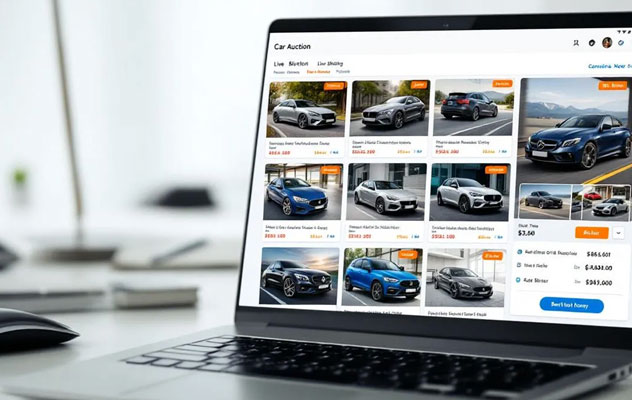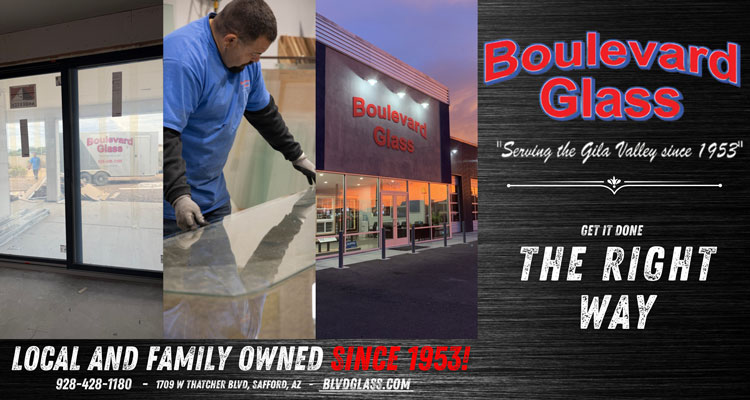Browsing through online car auctions can resemble flipping through a virtual dealership – glitzy SUVs, used trucks, and even the occasional obscure sports car just a few mouse clicks away. However, behind those glossy listings lie questions – one that stands out is: are online auto auctions safe?
It’s not just a matter of curiosity. Safety in the digital automotive marketplace means avoiding scams, hidden damage, or ballooning costs. If you’re planning to explore the world of online car auctions, read on. This guide will help you navigate the process with confidence—and without costly regrets.
For buyers searching for dependable deals, especially in major cities, it’s wise to consider platforms like car auctions in Chicago. These outlets provide access to thousands of listings, ranging from rental cars to salvage title cars, fleet vehicles, and beyond. The real key? Understanding the platform, the car, and your buyer rights before placing that first bid.
What Makes Online Car Auctions So Popular?
Online auto auctions exploded in popularity over the last decade. Digital convenience, expanded inventory, and fast bidding cycles made them irresistible. Online auction sites offer affordable vehicles—often far below market price—and a thrill you can’t get from a dealership lot.
But this convenience brings risk. A smart buyer doesn’t just click “Bid.” They research the vehicle’s condition, compare auction sites, and analyze the bidding process.
Risks Involved: What Buyers Must Watch For
Let’s not sugarcoat it. Online auctions have risks. From incomplete vehicle history reports to misleading photos, you could face costly repairs if you don’t tread carefully. Some sellers list salvage cars without explaining the extent of prior damage. Others hide past insurance claims, odometer issues, or missing titles.
A legitimate platform will offer detailed listings, VIN access, and real-time communication. The presence of buyer protection features is a must. Lack of those? Red flag.
The Importance of Vehicle History
It is not simply a matter of preference, but essential to gain insight into a car’s history. Trustworthy sites utilize vehicle history reports to help identify whether the car has been in a major accident, has been deemed a total loss by an insurance company, or has been salvaged out of a flood zone.
These reports also help identify whether the car is a fleet vehicle, a former rental car, or a trade-in with open recalls. Omitting this step is a huge risk, as you could end up parking the sporty car you just won as a mere decoration in your driveway!
How to Identify a Trustworthy Auction Platform
Not all platforms are equal. A reliable auction platform is transparent. It lists full specs, title status, and damage codes. It doesn’t hide auction fees or spring surprises after a winning bid.
Reputable auction platforms provide VIN search access, contact details, and sometimes phone support. Look for licensed operations affiliated with major automotive industry players. A good online auction platform will never pressure you or attempt to lure buyers with unrealistic prices.
Secure Payment Gateways: Non-Negotiable Safety Feature
Scams spike where security lags. Stick with platforms using secure payment methods and secure payment gateways. Avoid wire transfers or non-refundable crypto transactions unless verified. If the seller insists on quick payments outside the platform, walk away.
A secure platform won’t just protect your card. It will also provide payment documentation and bidding confirmations. These safeguards protect your funds and your ability to dispute fraud.
How to Avoid Scams on Online Car Auctions
Scams often target public buyers. They may involve cloned listings, fake VINs, or manipulated mileage. Here’s how to avoid scams:
- Research the seller’s reputation
- Verify vehicle title and VIN independently
- Never send money off-platform
- Ask for more photos or detailed listings
- Review the platform’s dispute policy
Avoid online auction sites that don’t offer secure platform protections. And if the deal sounds too good? It probably is.
What Kinds of Cars Can You Expect?
From salvage title cars to clean-titled used cars, the range is wide. Want exotic models? Online auctions offer sports cars and classics. Need something practical? You’ll find fleet vehicles and great cars for commuting or resale.
Online auction platform listings often include:
- Sedans and SUVs
- Several cars from the government and bank repos
- Damaged vehicles for flipping
- Mercedes-Benz and other luxury models
- Trade-ins from licensed dealers
Each one brings its own advantages and risks.
Tips to Win Without Losing Your Shirt
Want to emerge as one of the smart buyers? Study before you bid. Here’s what seasoned buyers do:
- Use VIN tools to research similar vehicles
- Compare listings across multiple auction sites
- Estimate repair costs and assess the final price
- Ask about security deposit policies
- Use forums to learn from other buyers’ experiences
Winning the next vehicle shouldn’t feel like spinning a wheel. Solid prep increases your odds—and your ROI.
Conclusion: Yes, Online Car Auctions Can Be Safe
So, are online automotive auctions safe? Yes—if you select a reliable platform, check the car’s history, use an appropriate payment system, and respect the auction process. Don’t cut corners. Don’t rush into the purchase.
In this relatively new and always expanding digital space, caution is power. Whether you’re an enthusiast out hunting for a great deal or a dealer building inventory, trust your research, gut, and common sense.
FAQ: Smart Answers for Cautious Online Buyers
1. Can I buy from online car auctions without a dealer license?
Yes. Many platforms welcome public buyers and do not require a dealer license. However, dealer-only auctions exist and are typically limited to registered businesses. Always check eligibility before signing up.
2. What happens if I win a bid but don’t pay?
Most online auction platforms charge a security deposit up front. If you fail to complete the buying process, you may forfeit your deposit and face account suspension. The auction process is legally binding—treat every bid like a purchase.
3. Are salvage title cars worth the risk?
Salvage title cars often come at lower prices but may hide extensive damage. If you have access to expert inspections or plan to rebuild, they can be profitable. But without due diligence, they may lead to costly repairs and resale challenges.
4. How do I know the market price of a vehicle before bidding?
Use VIN lookup tools to research similar vehicles, check listing sites, and track final sale prices on auction sites. Understanding market price helps you avoid overbidding and makes it easier to walk away when bids exceed the vehicle’s value.
5. What should I look for in a secure platform?
A secure platform should include clear VIN access, buyer verification, transparent fees, secure payment methods, and visible contact details. Bonus points if the platform offers phone support, real-time chat, and extensive vehicle listings with photos.












